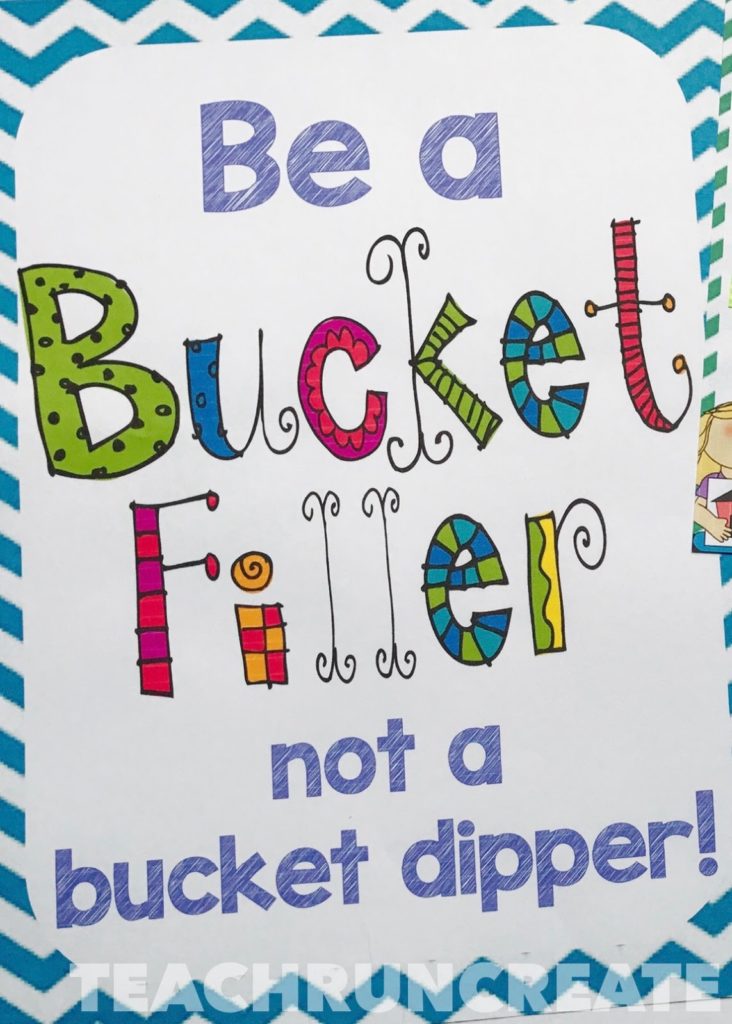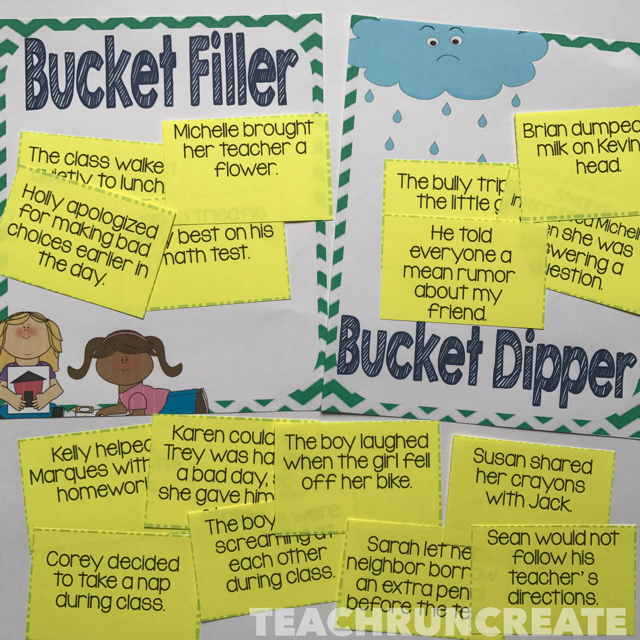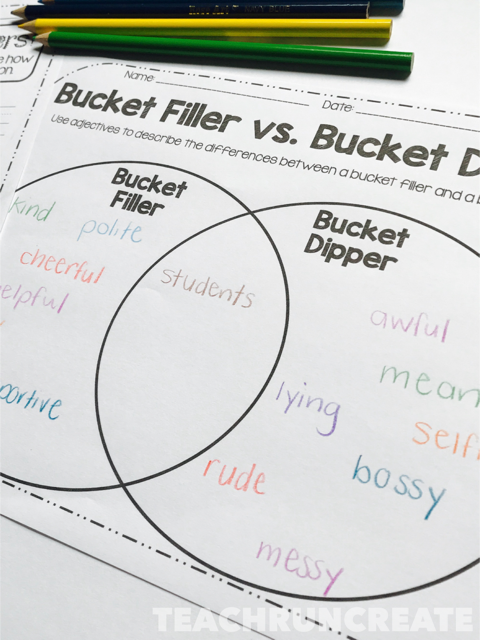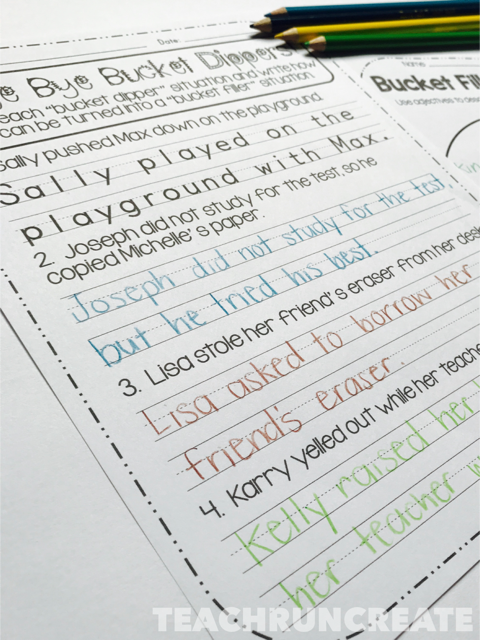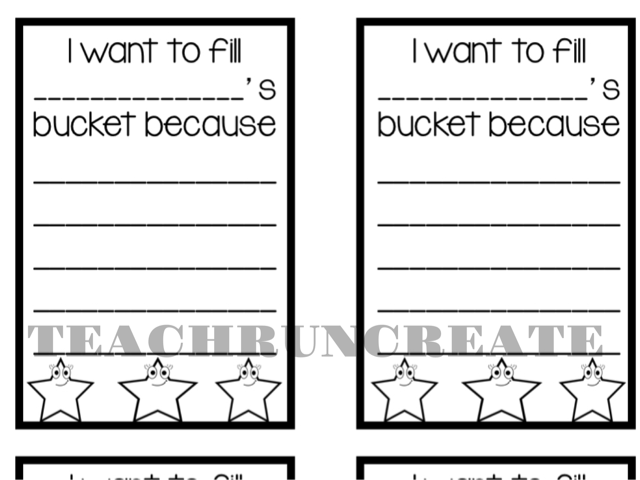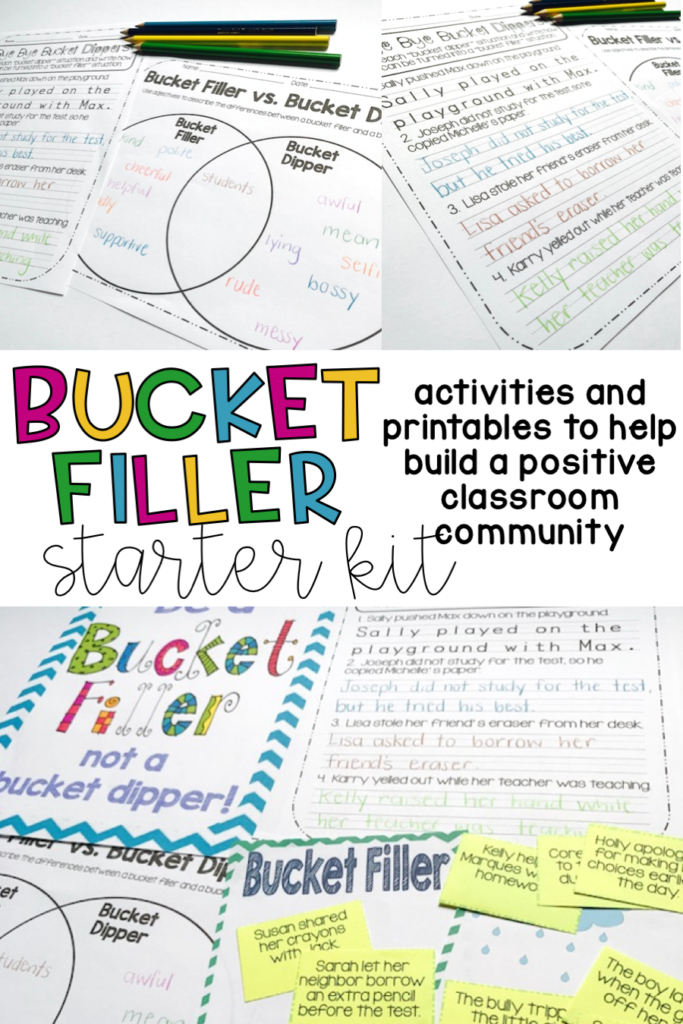My first year of teaching I taught 2nd grade. Before the school year started, I was on the hunt for all the tips and tricks I could find to help with classroom management. I found the book Have You Filled a Bucket Today by Carol McCloud and knew I had to incorporate this book into my class!
On the first day of school I read this book to my students. I hung my Bucket Filler poster on the wall, and we did all the “typical” read aloud activities. After reading I had students discuss with their partner what it meant to be a Bucket Filler.
Students then work in small groups to sort situations into two categories: bucket fillers and bucket dippers. This is a great activity to have students work on when you’re doing some of that necessary first week of school tasks (sorting supplies, initial assessments, etc).
After sorting the situations, students can work independently to complete the venn diagram. I like having students complete the sorting activity first because it helps them come up with the adjectives to use in their venn diagram.
Since first posting this resource on Teachers Pay Teachers, I have updated this particular activity. I realized it was difficult to come up with one word adjectives to describe bucket fillers and bucket dippers. I added another page that says “words or phrases” instead of “adjectives.” I also realized there are not many similarities between these two type of students. Due to this, I added a comparison sheet that focused just on differences.
In the coming weeks, I give students an independent activity to do during center rotations. In second grade, students need A LOT of practice on routines during center rotations. I like this activity because it requires students to think about common situations and how they could have been dealt with in a more positive way.
While I only do these specific activities during back to school, I talk about bucket fillers all year. In my class I had a “bucket door.” Each student had a small library pocket with their name on it.
Next to the door, was a sand bucket with slips of paper. Students could write a kind note to their classmates to “fill their bucket.” I taught students when the appropriate times were to fill out a note (before the morning bell, after work was completed, extra time at dismissal)
There are times I would stop instruction for 5 minutes and have each student pick a random classmate’s name from a jar. They have to write a bucket note to the classmate they pick. At first, I got some groans because students did not want to write a note to someone who was not their best friend. As the year went on, my class became a family. I soon found students treasured the notes from classmates they were not friends with the most. They loved seeing unexpected students say kind things about them.
Here are some of the other books you could use with Bucket Fillers:
{{ These are affiliate links. The money earned from these links is used to further fund my classroom projects and keeping this blog going. }}
If you are interested in checking out the resources that I used to implement Bucket Filling in my classroom, you can check it out at my TpT store HERE.

